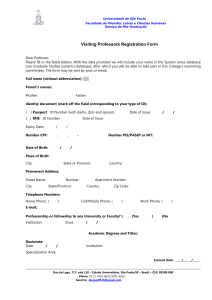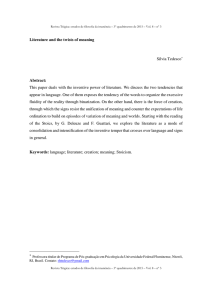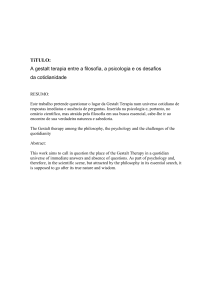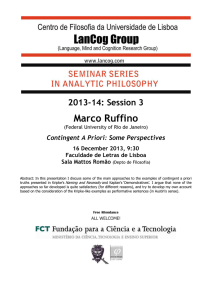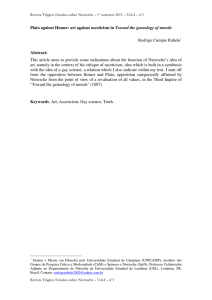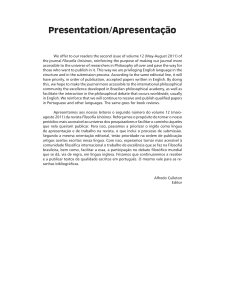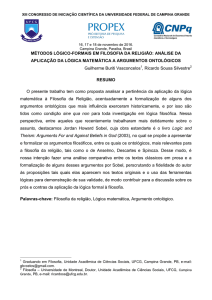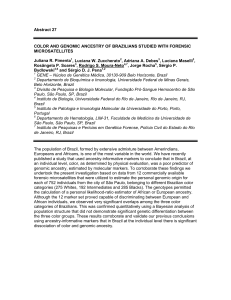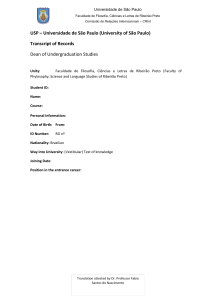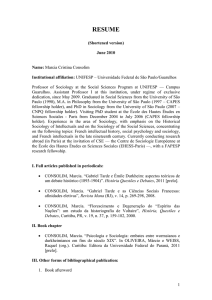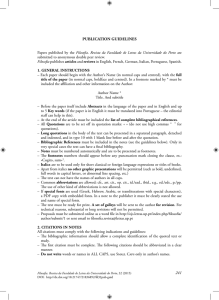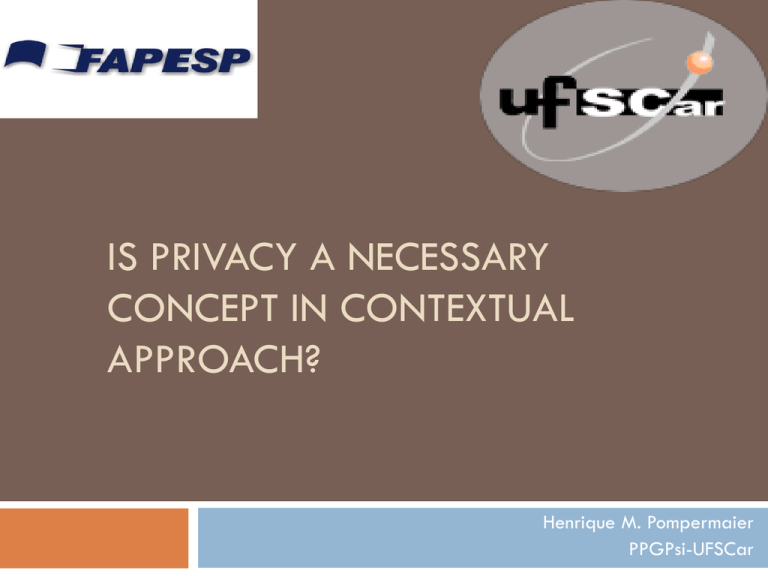
IS PRIVACY A NECESSARY
CONCEPT IN CONTEXTUAL
APPROACH?
Henrique M. Pompermaier
PPGPsi-UFSCar
Different meanings for “private”/“privacy”, most of
them related to classic psychological dichotomies
“privacy” has a important place in behavioral
approach, especially in addressing the so-called
“subjective phenomena”
“Private events theory”: how individuals who are in
contact with different stimuli can share classes of
verbal response related to some events?
Patient and dentist
Blind and seer
Privacy:“restricted accessibility”
public events are directly accessible to the
individual and the community – sharing of
observational data
private events are directly accessible only to an
individual – no sharing of observational data
Separation between observation and
interpretation;
Observation: pure and direct access to the object of
study
Individual and community are “touched” by the
same stimuli (realistic posture)
“observation – what is it before interpretation?”
(Hanson, 1975)
Observation and interpretation are inseparable: to
observe is to interpret; and to interpret is to
observe.
Observation “is driven by interests of context”
(p.135).
Emotions, feelings, thoughts are forms of to be
related with the world
Elements of behavioral relation are defined in their
participation on it
Behavior as more or less complex phenomena;
Complexity: involvement and interlocking of
different behavioral relations and of distinct levels
of selection
Characteristic complex social arrangements and
process of modern societies are the basis for the
development of the illusion that there is a obscure
and inaccessible place where things that determine
the behavior happens (a “private” or “internal”
world). (Tourinho, 2006)
The problem of privacy arises exactly when the
community who mediates and modulates the
individual's relation to the world is not able to
discriminate the contingencies involved in the
phenomena
"What event in the world is working as a
discriminative to the cry response of that person?";
What is shared is not the access to "observation
data" but a history of contingencies
Dealing with subjective phenomena as complex
phenomena, consequence of the interlocking of
behavioral relations constituted in different levels of
selection, we avoid problematic questions about
accessibility present on private event concept.
A functional-contextual analysis – effort to go
beyond mentalism and physism, which means, go
beyond privacy.
References and bibliography
Donahoe, J. W. & Palmer, D. C.
(1994). Learning and Complex
Behavior. Boston/ London: Allyn and
Bacon.
Hanson. N. R. Observação e
Interpretação: Filosofia da Ciência. São
Paulo: Ed. Cultrix. 1975. p. 126-139.
Hayes, L. J. & Fryling, M. J. (2009)
Overcoming the pseudo-problem of
private events in the analysis of
behavior. Behavior and Philosophy, 37,
39-57
Lopes, C. E. (2006). Behaviorismo Radical
e Subjetividade. Tese de doutorado. São
Carlos: Programa de Pós-Graduação em
Filosofia da Universidade Federal de
São Carlos..
Lopes, C. E. e Abib, J. A. D. (2003) O
behaviorismo radical como filosofia da
mente. Psicologia: Reflexão e Crítica, v.
16, n.1, p.85-94
Skinner, B. F. (1957). Verbal Behavior.
New York: Applenton-Century-Crofts.
Skinner, B.F. (1961). The Operational
Analysis of Psychological Terms. Em: B.F.
Skinner (Org.), Cumulative Record. New
York: Appleton-Century-Crofts. (Trabalho
originalmente publicado em 1945)
Tourinho, E. Z. (2006). Subjetividade e
relações comportamentais. Tese para
concurso de Professor Titular. Belém:
Departamento de Psicologia
Experimental da Universidade Federal
do Pará.
[email protected]

